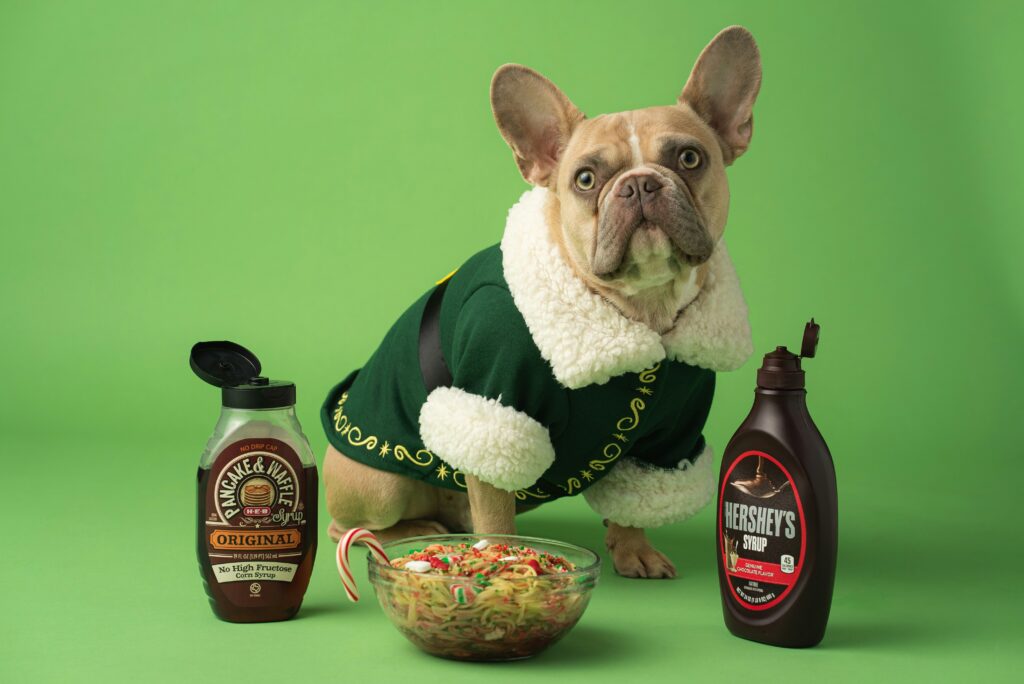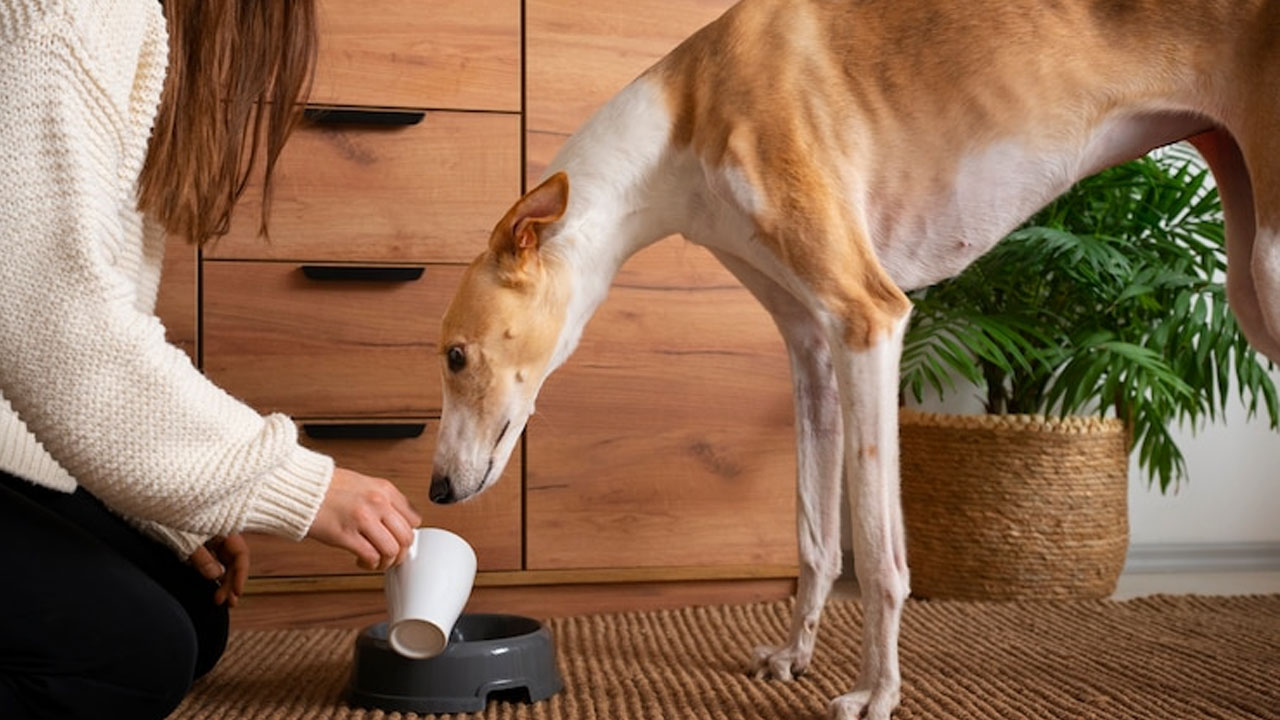The question is, Can Dogs Eat Corn? The answer is Yes, corn is generally safe for dogs when given in moderation. Corn offers several nutritional benefits, including being a source of carbohydrates, dietary fiber, and essential fatty acids like linoleic acid, which promotes healthy skin and coat.
However, corn cobs can pose serious health risks, such as intestinal blockages, so it’s crucial to avoid feeding them to your dog. Sweet corn, canned corn, and frozen corn are suitable options when cooked and served plain, without any added salt, butter, or artificial flavors.
While corn can be a tasty treat for dogs, it’s important to monitor for any food allergies or digestive issues. Always consult your veterinarian if you’re unsure about the appropriateness of corn or any other human food in your dog’s diet.
Is Corn Good for Dogs?
Corn can be good for dogs when fed in moderation. It is non-toxic and provides nutrients like vitamins B and C, magnesium, and dietary fiber, which support energy metabolism, immune health, and digestion. However, it should always be cooked and served off the cob to prevent choking and digestive issues.
Some dogs might be allergic to corn, exhibiting symptoms such as itching, skin irritation, or digestive upset. Always consult your veterinarian before introducing new foods into your dog’s diet. In essence, corn can be a healthy, occasional treat, contributing beneficial nutrients to your dog’s overall diet.
Can Dogs Eat Corncobs or Husks?
No, feeding your dog corncobs or husks is not safe and can lead to severe health risks. Corncobs can cause intestinal blockages and gastrointestinal obstructions, which might require costly emergency surgery. Unlike corn kernels, which offer nutritional benefits such as linoleic acid, fiber, and essential fatty acids, corncobs provide no nutritional value and pose significant health concerns.
Corn husks can also be difficult for dogs to digest, potentially leading to stomach upsets and digestive issues. While sweet corn, canned corn, and frozen corn can be a tasty treat in moderation, always ensure that they are cooked and served plain, without any artificial flavors or added sugar content. If you want to incorporate corn into your dog’s diet, stick to safe corn products and avoid any parts of the corn that could cause harm. Always consult your veterinarian to ensure a balanced diet and avoid potential risks.
Can Dogs Eat Canned Corn?
Canned corn can be a convenient option for humans, but can dogs eat it too? The short answer is yes, dogs can eat canned corn, but there are some important considerations to keep in mind.
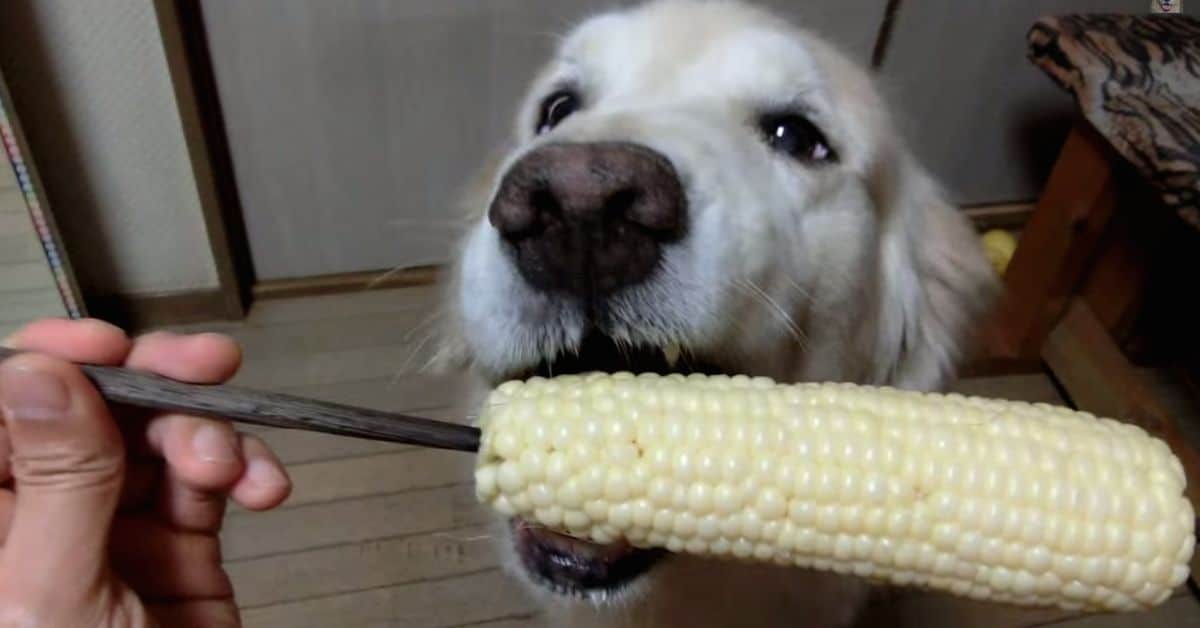
Nutritional Value and Benefits
Canned corn retains much of the nutritional value found in fresh corn, including essential vitamins and minerals like vitamins B and C, magnesium, and dietary fiber. These nutrients can support your dog’s overall health, aiding in energy metabolism, immune function, and digestive health.
Considerations and Precautions
- Added Ingredients: Many canned corn products contain added salt, sugar, or preservatives that can be harmful to dogs. Excessive salt can lead to sodium ion poisoning, while added sugars and preservatives may cause digestive issues or other health problems.
- Moderation is Key: Even if the canned corn is free from harmful additives, it should still be given in moderation. Corn is high in carbohydrates, and too much can contribute to weight gain and other health issues if not balanced with other nutrients.
Preparation Tips
- Rinse Thoroughly: To reduce the sodium content, rinse the canned corn thoroughly under running water before serving it to your dog.
- Serve Plain: Ensure the corn is served plain, without any added butter, salt, or seasonings.
- Small Quantities: Introduce canned corn in small amounts to ensure your dog doesn’t have any adverse reactions.
Can Dogs Eat Corn Tortillas?
Yes, dogs can eat corn tortillas in moderation as an occasional treat. Corn tortillas are made from corn kernels, which can offer nutritional benefits such as linoleic acid and essential fatty acids that promote healthy skin. However, corn tortillas should not be a primary source of carbohydrates in your dog’s diet due to their potential to cause digestive issues if consumed in large amounts.
Ensure the tortillas are plain, without artificial flavors or added sugar content. Avoid giving your dog corn tortillas frequently, as they may contribute to weight gain and gum disease. While corn tortillas can be a tasty treat, it’s essential to monitor your dog for any food allergies or adverse reactions. Always consult your veterinarian to ensure a balanced diet and the overall appropriateness of corn products for your dog.
Does Corn Have Any Nutritional Value for Dogs?
Corn often gets a bad rap as a filler ingredient in dog food, but does it offer any nutritional value for dogs? The answer is yes. Corn can provide several key nutrients that contribute to your dog’s overall health.
Vitamins and Minerals
Corn is a source of essential vitamins such as:
- Vitamin B: Helps support energy metabolism and maintain healthy skin and coat.
- Vitamin C: Acts as an antioxidant, supporting the immune system and overall cellular health.
- Magnesium: Important for muscle and nerve function.
Dietary Fiber: Corn is high in dietary fiber, which aids in digestion by promoting regular bowel movements and helping to maintain a healthy gut microbiome. Fiber can also help control weight by providing a sense of fullness, reducing the likelihood of overeating.
Protein and Fatty Acids: Corn provides a modest amount of protein and essential fatty acids like linoleic acid. These nutrients are vital for maintaining healthy skin, a shiny coat, and overall cellular function.
Carbohydrates for Energy: As a carbohydrate-rich food, corn is a good source of energy. It provides a steady supply of glucose, which is essential for maintaining your dog’s energy levels throughout the day.
Antioxidants: Corn contains antioxidants, such as lutein and zeaxanthin, which support eye health and protect cells from damage caused by free radicals.
Is it Safe for My Dog to Eat Corn on the Cob?
No, feeding your dog corn on the cob is not safe and can lead to serious health issues. While corn kernels provide nutritional benefits such as linoleic acid, fatty acids, and essential nutrients, the cob itself poses a significant risk. Corn cobs can cause intestinal blockages, and gastrointestinal obstruction, and even require emergency surgery if ingested.
Despite being a tasty treat, the entire corn cob is difficult for dogs to digest and can lead to severe digestive issues. Sweet corn, canned corn, and frozen corn are safer options for dogs in moderation. Ensure these are plain, without added artificial flavors or sugar content. Always avoid giving your dog access to corn cobs to prevent potential health risks and maintain a balanced diet. Consult your veterinarian to discuss the best corn products and portion sizes for your dog’s diet.
Why Are Grains Used in Dog Food?
Grains are commonly used in dog food for various reasons, despite some controversies surrounding their inclusion. Here’s why grains are utilized in many dog food formulations:
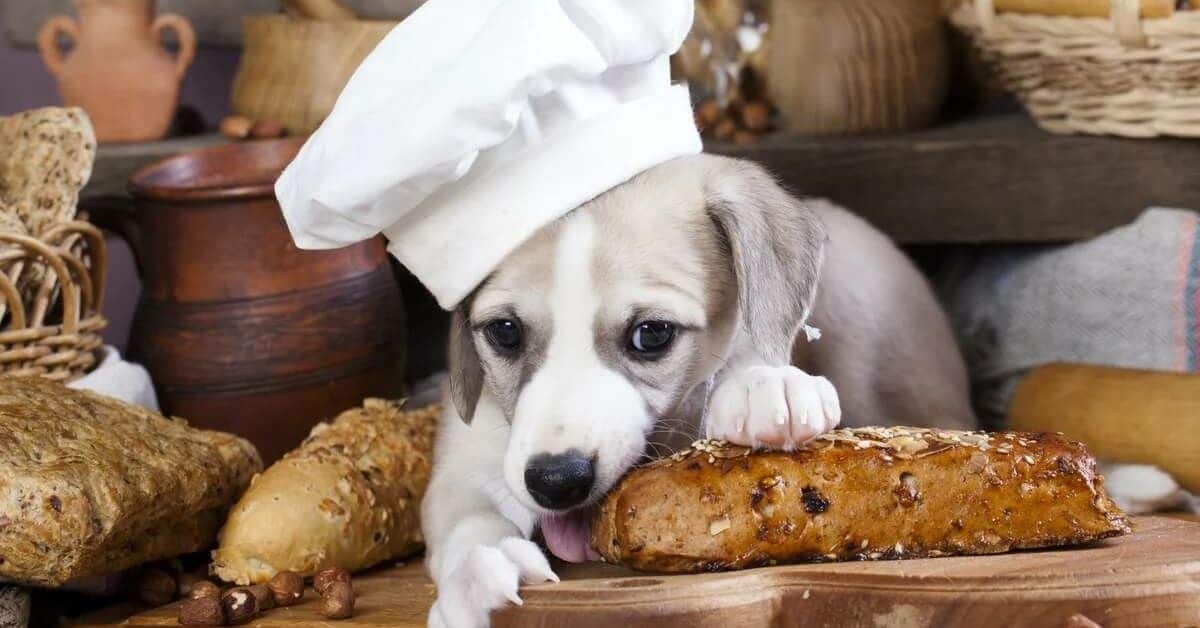
- Nutritional Balance: Grains like corn, wheat, and rice are rich sources of carbohydrates, serving as the primary energy source for dogs. Carbohydrates are vital for providing the energy dogs need to maintain their active lifestyles and support bodily functions.
- Cost-Effectiveness: Grains are generally more affordable than meat proteins, making them a cost-effective option for dog food manufacturers. Incorporating grains into formulations allows manufacturers to offer nutritious diets at lower price points, ensuring accessibility for pet owners.
- Dietary Fiber: Grains are abundant in dietary fiber, which aids in maintaining digestive health in dogs. Fiber regulates bowel movements, prevents constipation, and supports a healthy gut microbiome. Including grains ensures dogs receive sufficient fiber in their diet.
- Texture and Palatability: Grains contribute to the texture and palatability of dog food, enhancing its appeal to dogs. They add bulk and chewiness to kibble, making it satisfying to chew. Additionally, grains can improve the flavor of dog food, making it more appealing to picky eaters.
- Nutrient Diversity: Grains offer a diverse range of essential nutrients, including vitamins, minerals, and antioxidants. Their inclusion in dog food formulations enhances nutrient diversity, ensuring dogs receive a comprehensive array of nutrients to support overall health and well-being.
Should Dogs Eat Corn at All?
While corn can offer some nutritional benefits for dogs, including being a source of linoleic acid, essential fatty acids, and carbohydrates, it’s not essential to their diet. Some dogs may benefit from the nutrients found in corn, such as healthy skin and extra energy, but others may experience digestive issues or allergies.
It’s important to consider your dog’s individual health needs and consult with a veterinarian before incorporating corn into their diet. Additionally, while plain corn kernels may be safe for dogs in moderation, other corn products like corn cobs or corn chips should be avoided altogether due to the risk of intestinal blockages and other health concerns. Ultimately, whether or not dogs should eat corn depends on their specific dietary requirements and any existing health conditions they may have.
Which Types Of Corn Can Dogs Eat?
Dogs and Corn: Understanding Safe Options
Dogs can safely consume various types of corn, but some are more suitable than others. Here are the types of corn dogs can eat:
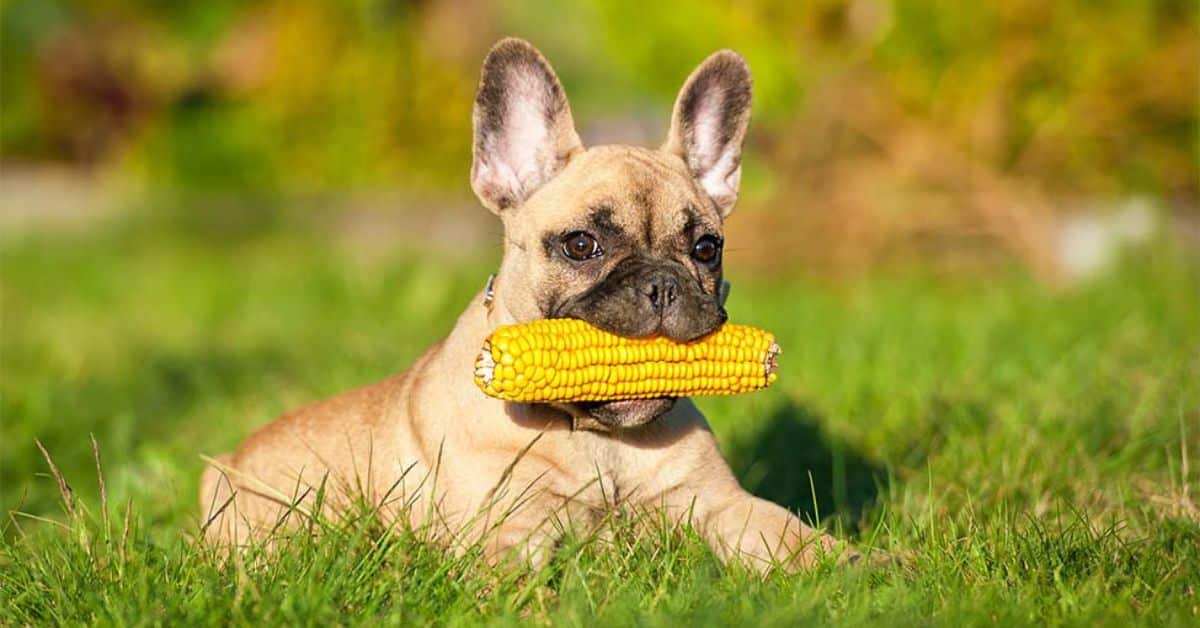
Plain Corn Kernels: Fresh, plain corn kernels, whether cooked or raw, are safe for dogs to eat. They provide essential nutrients and can be a healthy addition to their diet when served in moderation.
Sweet Corn: Sweet corn, known for its high sugar content and palatable taste, is safe for dogs in moderation. However, ensure it’s served plain without any added butter, salt, or seasonings.
Cooked Corn: Cooked corn, whether boiled, steamed, or roasted, is safe for dogs to consume. Cooking helps break down the cellulose in corn, making it easier for dogs to digest.
Frozen Corn: Frozen corn is safe for dogs as long as it’s thawed and served plain. Avoid canned corn with added salt or other additives, as they can be harmful to dogs.
Cornmeal and Corn Flour: Cornmeal and corn flour, used in various dog treats and recipes, are safe for dogs when included in moderation.
When feeding corn to your dog, always remove it from the cob and serve it plain to prevent choking hazards and digestive issues.
For More Information
We have a ton of information regarding what foods, from popular snacks to fruits, are healthy or harmful for your dog. You might also be interested in “Can Dog Eat Cat Food?“
Conclusion
While corn can be a safe and nutritious addition to a dog’s diet when given in moderation, it’s essential to be mindful of potential risks such as allergies and digestive issues. Corn kernels offer nutritional benefits like linoleic acid and essential fatty acids, promoting healthy skin and providing extra energy.
However, other corn products like corn cobs should be avoided due to the risk of intestinal blockages. Consulting with a veterinarian is crucial to determining the appropriateness of corn for your dog’s individual dietary needs. Ultimately, maintaining a well-balanced diet tailored to your dog’s health requirements is key to their overall well-being.
FAQ
Is it okay for dogs to eat corn?
Yes, as long as you remove the kernels from the cob before giving it to your dog, they are allowed to enjoy a limited bit of corn.While corn is typically healthy to consume, it shouldn’t be given to them in big amounts due to its high sugar content.
Is corn ok in dog food?
Both dogs and cats can easily digest corn, which also offers nutrients. Corn processing yields coproducts like corn gluten meal and distillers dried grains with solubles that hold onto high-quality protein and fibrous parts that lessen the calories in food.
Are dogs allergic to corn?
A popular component in a lot of dog meals is corn, often known as maize. Due of their overly sensitive immune systems to the substance, many dogs have corn allergies, which induce a variety of adverse symptoms. When a dog exhibits signs that point to a sensitivity to maize, it may be suffering from corn allergies.




